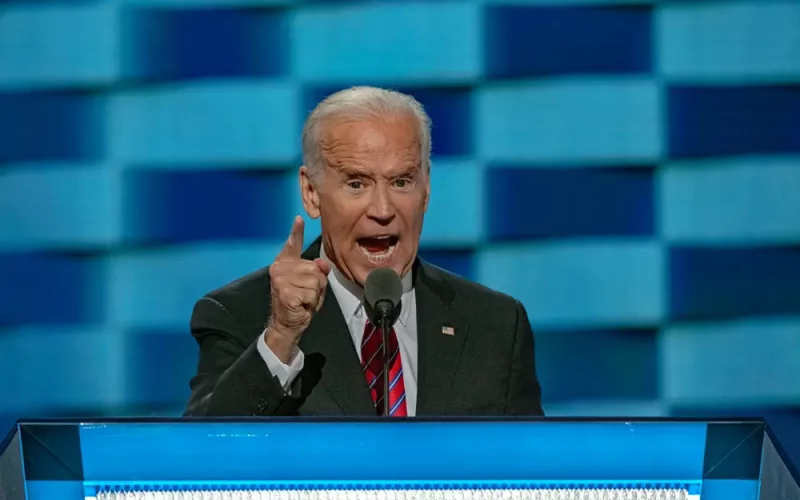The Republican-led House of Representatives has apparently just discovered that it has the power of the purse.
On Thursday, the House approved legislation requiring the Biden administration to permanently freeze $6 billion in cash it had made available to Iran earlier this year in exchange for the release of five American captives.
Rep. Michael McCaul (R-TX), chairman of the House Foreign Affairs Committee (HFAC), proposed the measure, which was approved 307-119.
Ninety Democrats joined almost all present Republicans in voting for the legislation, while 118 Democrats and one Republican, Rep. Thomas Massie (R-KY), opposed it.
Republicans have lambasted the agreement since it was revealed in August, accusing the Biden administration of caving to Iran and allowing what they see as a terrorist government to imprison more Americans and take more aggressive action against the United States in the Middle East.
Rep. Keith Self (R-TX) stated President Biden has shown he is prepared to “reward hostage-taking” by reaching an agreement with Iran, and that Washington must stand up to Iranian aggression.
“There is only one language that is understood by our adversaries,” he said on the House floor. “That is strength.”
The White House defended the decision to unfreeze the $6 billion, claiming it was vital to liberate the five Americans who were wrongly jailed. The Biden administration also stated that the funds could only be used for humanitarian purposes, despite Iran’s vow to utilize the funds anyway it sees fit.
Rep. Gregory Meeks (D-NY), leading member of the HFAC, stated that “not a single penny” of the monies has been spent by Iran and that the funds will not be used for “nefarious purposes,” claiming that breaking the pact would harm the US’s worldwide credibility. In addition, he stated that Biden “did the right thing” by releasing the detained Americans.
“He brought five Americans home who were rotting in Iran’s notorious prison and every member of Congress, I repeat, every member of Congress who was aware of these cases wanted our fellow citizens home,” Meeks said. “I ask my colleagues on the other side, what do you say to those families? Do we renege on the deal?”
McCaul stated that it would be “naive” to believe Iran will solely utilize the funds for humanitarian purposes. He added the deal was not “just about the five American hostages,” suggesting the Biden administration may have used the unfreezing of the funds to seek a revived agreement with Iran on limiting the country’s nuclear weapons development. The US has denied that nuclear negotiations were part of the agreement.
“There’s something else going on here,” McCaul said. “This is about the undercurrent of a deal we don’t know about.”
The House amended the measure to condemn Hamas and Iranian-backed groups for employing human shields and to urge on US partners in the Middle East to denounce the groups for antisemitism.
Another Republican amendment restricts the use of US government funding for Iran, while a second party-line amendment claims that the Iranian-backed Houthis in Yemen gain from the Biden administration’s unwillingness to criticize them.
The Republican Party has been increasingly dissatisfied with the agreement since the Palestinian terrorist organization Hamas assaulted southern Israel on Oct. 7, murdering 1,200 people and kidnapping more than 240 others. Iran is a key financier and supporter of Hamas.
Since the conflict began, Iranian-backed militias have battled dozens of times with US soldiers around the Middle East, though no American troops have been killed in what has primarily been tit-for-tat exchanges of explosive drones and rocket strikes.
Following the Hamas assaults in October, the Biden administration declared that Iran would not be receiving the funds for the time being.
Officials stated at the time that they had achieved an arrangement with Qatar, which is managing the monies in its banks in order to eventually release the assets to Iran, to keep the funds. At the time, Secretary of State Antony Blinken also stated that Iran had not yet touched the money.
The House bill, which passed out of the Foreign Affairs Committee earlier this month, would block Iran from accessing the cash by requiring the Biden administration to impose penalties on any foreign organization that attempts to unfreeze the assets for Iran.
The Senate has sponsored legislation to block Iranian cash, but it has yet to get out of committee.
It remains to be seen if this becomes a trend under new House Speaker Mike Johnson: Republicans finally using the power of the purse to rein in the bully pulpit of the Biden presidency.

